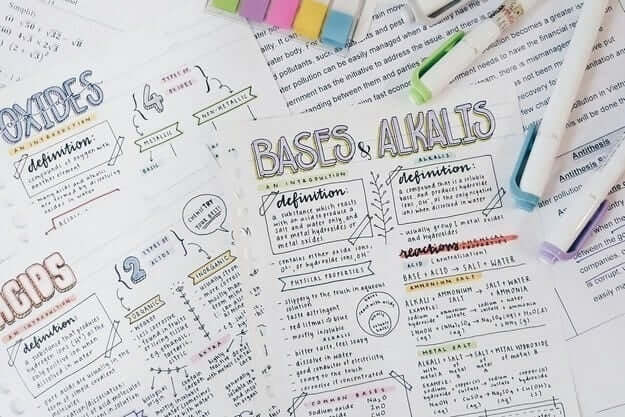Tutoring Sessions: How to Get the Most for Your Child

A tutor – someone who works with your child one-on-one, understands their specific needs and tailors teaching – is a powerful partner in an educational journey. If you’re a parent who has taken the time to invest in a tutor, you may wonder how to maximise the tutoring lessons.
Many students aren’t sure how to prepare for a tutoring session. In fact, some kids might expect a passive stream of content, with higher marks popping into existence by magic. The truth is that tutoring is a collaborative experience. It is blazingly successful when kids are ready and engage.
Here are solid ways to help your child prepare for a tutoring session – and set themselves up for academic leaps and success.
What to prepare and bring to a session
It’s helpful when a student comes prepared. This shows the tutor your child is serious and saves time.
Make sure your child has these at hand:
1. Stationery: pens, pencils, highlighters and somewhere to write notes, do exercises and scribble.
2. Work being done in class: a current textbook, setwork, notes, exercise book, anything that gives the tutor an idea of what’s being covered and how your child works at school. If you know your child’s bag organisation tends towards unhelpful, you can ask them to set aside the right materials in advance.
3. Any recent assessments or marks: this gives the tutor feedback on how your child is performing under controlled conditions and reveals specific, subsection-level needs and gaps.
4. If working online, devices set up, charged and ready: ensure your child knows how to connect, keep the call in a separate window and launch needed apps. If they have electronic notes, it helps for these to be opened and minimized in preparation. (Searching for oddly named documents can take a lot of time.)
5. If working from home, a quiet, distraction-free area: vibes and ambience matter when kids need to think deeply and focus intensely.
6. Food: teens especially can struggle to work when hungry. Eating beforehand makes a noticeable difference on their attentiveness and motivation.
What to give and ask the child’s tutor before sessions start
Some students arrive at a tutoring session with one question: help me do better with everything. That might be a real need, but time is finite. Having an idea of your child’s gaps in a subject is golden information for the tutor and makes sessions more effective.
Some parents already have a full list of problem areas, but it’s fine if you aren’t sure. Ask the tutor what work should be being covered in class and what kinds of marks a kid should be getting at this stage.
You can also ask for a reasonable goal in a subject. Ask what getting a certain mark would realistically require, what effort would be exerted, what skills and values your child would need to exhibit.
And ask about timelines. In many subjects, doubling a mark in a few weeks is a stretch. You want to be empowered with a sense of the trajectory.
If you don’t have a good idea of where your child is struggling, no problem – no one expects a parent to be an academic expert on the exhaustive curricula of every subject. There are ways to help your tutor get a feel for things:
1. Give them a recent marked test or assignment. Assessments give powerful, often granular information and feedback, especially if a marker has left commentary.
2. Show them recent marks or a report. A tutor can detect trends between assessments and in how marks change over time, and turn that into an academic profile.
3. Ask the teacher for information. They’ll have a clear view of your child’s progress, what work is coming up and where they think your child would benefit from additional support.
4. Ask if they’re open to communicating with the teacher. Most teachers are happy to keep in contact with tutors and can be more objective in their recommendations.
5. Ask the tutor to run a small diagnostic. A simple comprehension test or quiz gives plenty of detail for the tutor to work from.
Over time, of course, your tutor will gain an even more detailed understanding and will shape future lessons accordingly.
How to engage during the tutoring session
Tutoring is a connective activity. It thrives when kids engage actively. That makes sense: they have the benefit of an expert giving attention to them alone, focused on their needs.
Here’s how to engage the right way with a tutor to optimise the lesson. If your child is a bit apprehensive or unsure of what to do, remind them to:
1. Ask questions when stuck. No embarrassment here – it’s just a tutor and no one else. Your child can stop the flow at any time and ask for help, for repetition, for circling back or for depth. The tutor is eager to work at the right pace.
2. Answer the tutor’s questions. You aren’t hiring a tutor to give lectures, but to interact, so help your child prepare to answer what is asked, even if the questions are challenging.
3. Keep notes and insights somewhere safe. Often, kids have lightbulb moments in a session. Make sure your child has a notebook, a dedicated page or an app where they can jot down these breakthroughs and return to them later. They might even add ideas to the notes they’ve taken in class – an idea on a poem, a method in a solution, etc.
4. Embrace the work. The tutor will ask your child to work in the session, and possibly afterwards too if needed. Make sure your child is ready for this. Academic work is rigorous and it’s supposed to be: you’re chiselling new neural pathways and pushing through conceptual blocks. Your child should know to expend some effort, but there will be a reward. This isn’t school. The payoff will come.
Stick with it!
Learning is iterative, effortful and progressive. It takes time to build skills, alter unproductive habits and push to a new goal. Stick with the process, keep your child engaged and let the rapport between tutor and student ignite progress.
Related Articles

Why Copying Notes Isn’t Enough for Effective Learning
When I was a high school teacher, I saw students trying everything to study better. Before an exam, they crowded into corridors with notebooks and exam pads,
Read More

Why Studying for Exams is Different to Learning for Learning
Exams v LearningThis may sound familiar: your child wants higher marks. In class, they understand what’s being said, the content fits, their homework is mostly
Read More

Managing Exam Stress: Essential Survival Tips for Parents
As parents, we know that a little bit of stress can actually be a good thing—it can motivate our children and help them focus during exams. This kind of
Read More

We help families find their perfect tutor
Help your child improve their grades and get their confidence back.
GET A TUTOR